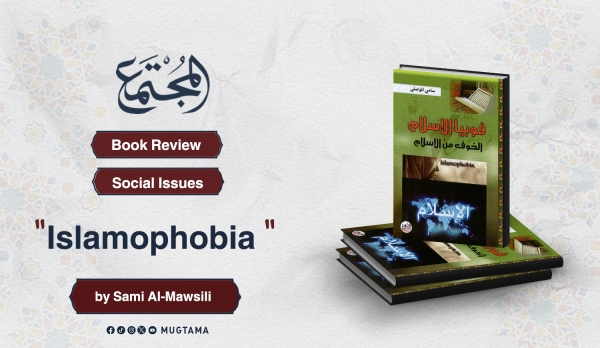Pathological Fear of Islam and Its Political Dimensions
The book Islamophobia by Sami Al-Mawsili is an in-depth study that examines the growing Western fear of Islam, which has evolved from mere individual sentiments into an institutionalized policy reflected in decisions and strategic directions adopted by Western countries. The author discusses the various dimensions of this phenomenon, shedding light on its historical, political, and social roots while reviewing the perspectives of Orientalists and Western intellectuals who sought to counter the global spread of Islam.
The Historical and Political Roots of Islamophobia
Al-Mawsili asserts that the pathological fear of Islam is not just a fleeting emotional reaction but a deliberate strategy aimed at halting the expansion of Islam and undermining its civilizational influence on the global stage. The author cites documents and statements that reveal how the West perceives Islam as a civilizational threat—not only from a doctrinal perspective but also as a social and political force capable of shifting the global balance of power. He references the European Conference of 1907, where it was declared that Muslim unity posed the greatest threat to Western civilization. This conclusion led to the recommendation of creating a hostile entity in the Middle East, which later materialized in the establishment of the Zionist state.
Islam as an Influential Global Force
The book analyzes the West’s deep awareness of Islam’s growing power, not only due to the increasing number of its adherents but also because of its ability to shape societies and build civilizations. Al-Mawsili quotes Western thinkers who have acknowledged that Islam possesses a unique motivational energy that enables its rapid spread. They argue that if Islam were given the opportunity to exist in a politically free environment, it would reclaim its intellectual and civilizational dominance.
The Intellectual War Against Islam
The author details how Western powers have sought to weaken Islam from within by distorting its teachings and reinterpreting its texts to align with their own agendas. The book explores the recommendations of Orientalists and missionaries who attempted to use the Quran itself as a weapon against Muslims by manipulating its meanings and promoting the idea that what is new in it is not true, and what is true is not new. It also discusses the role of Westernization in education, efforts to impose the Western model in schools, and the targeting of Muslim women by immersing them in calls for false "liberation" and moral decay.
Political Manipulation and the Fueling of Divisions
Al-Mawsili highlights how dictatorial regimes in the Muslim world are employed as Western tools to thwart any genuine Islamic revival. He cites American thinker W.C. Smith, who stated: "If Muslims were granted freedom in their own countries, Islam would triumph. Therefore, Western interests can only be preserved through authoritarian regimes." The book explains how Western support for oppressive governments is part of a broader strategy aimed at keeping Muslims away from good governance based on Islamic principles.
The Future of Islam Amid These Policies
The author concludes his book with an in-depth analysis of Islam’s future in light of these ongoing challenges, affirming that despite all Western efforts, they have failed to stop the spread of Islam. On the contrary, Islam continues to grow even within Western countries. He further points out that what the West fears most is not Islam itself, but rather the emergence of strong Islamic leadership capable of uniting Muslims and restoring their civilizational role on the international stage.


